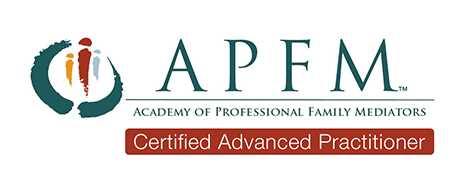“I’d love to make this divorce quick and to save money. I really would! But, how can I mediate with John when I don’t trust him?” Jenna bowed her head and sighed deeply.
Jenna isn’t alone. Many couples think mediation sounds good. Two people working together to cooperatively divide their assets and decide how to parent their children seems ideal.
cooperatively divide their assets and decide how to parent their children seems ideal.
But, what if the people are divorcing because they can’t work together? What if they can’t trust their spouse enough to try mediation?
Trust the mediation process . . . not the person
Mediation is designed to work with people in conflict. People whose trust is broken.
In fact, most marriages end because, one way or another, the trust has broken down. Whether a big event like an affair or smaller events over time, eroding trust crumbles marriages.
Fortunately, spouses don’t need to trust each other to mediate. Mediation rests on a proven process and objectively supported information–not the word of each person.
Mediators:
- define the desired outcome for each person
- define the issues the couple needs to address
- gather the information needed to fully understand both the issues and the options
- educate the couple on the pros and cons of each option
- help the couple decide which combination of options meets their individual and shared priorities
Because the couple is working within a defined process and with objective information, they don’t have to trust each other. They can trust the process.
Litigation vs. Mediation
Litigation pits each person against the other. Attorneys for each client fight to gain the most they can for their client in assets and in parenting.
When spouses are pitted against each other in a win-lose scenario, everyone loses. As attorneys wrench money and time with children from the other parent, any remnant of trust spouses had going into divorce shatters. Trust they need for life after divorce–for co-parenting, for living in the same community, or for untangling complex estates.
Mediation instead focuses on getting both people their highest priorities. Rather than one winning at the expense of the other, mediators focus on crafting options that meet the priorities of both.
Mediators don’t just expect people to work cooperatively; they equip people to work cooperatively. Mediators help each person understand the needs and desires of the other. They ensure both perspectives are honored. They reframe issues to open more options.
Finally, mediators base all agreements on objective information. Bank records, account statements, and credit reports frame financial agreements. Parents’ work schedules, parents’ long-term vision for their children, and children’s needs frame parenting plans.
Both people receive information tailored to answer their questions, so they rest assured they are protected. And, trust grows.
Mediation helps rebuild trust
This growing trust proves critical.
As already noted, couples divorce because they can’t trust each other enough to rekindle the intimacy critical to marriage. Yet, they likely still need some level of trust even after the divorce:
- to co-parent children
- to continue a mutually-owned business
- to maintain relationships with community, family, or church
Co-parenting–The statistics for children of divorce prove scary. Yet, one factor changes these–parents putting the children first. While parents may not trust each other for their own relationship, they need to work together for the well-being of their children. Mediation offers the opportunity to learn how.
In mediation, parents create a parenting plan that meets children’s needs, children’s schedules, and children’s desires. As they do this together, parents learn how to work together for their children going forward.
Business–When spouses own a business together, they face hard choices. For some couples, the business will either transition to one spouse or will be sold. The couple must cooperate to smoothly transition for either.
Other couples want to continue working together to maintain a business they have each sacrificed to build. Mediation offers the opportunity to create a concrete, effective business plan which defines each person’s role and governs how they will interact. In the process, spouses develop a new foundation of trust which allows their business to flourish.
Extended relationships–The life built during marriage includes community–neighbors, church, or extended family. To keep from losing significant relationships, mediation helps couples define how they will engage with their community. By defining expectations, couples preserve key relationships and limit the toll of divorce.
Jenna, like so many, wants the benefits of mediation but can’t envision how to work with a spouse she can’t trust. Fortunately, she doesn’t have to trust her spouse. She can trust the process.
If you are considering your options for divorce, we know you have questions. Please feel free to email info@TheResolutionCenterIndy.com or call 317-344-9740. We look forward to offering you answers.





